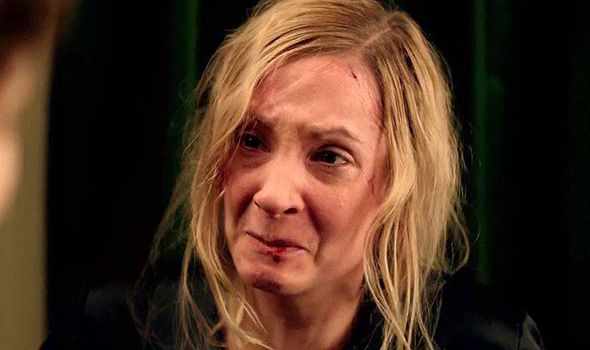Downton Abbey, Season 4, Episode 2
Directed by Catherine Morshead
Written by Julian Fellowes
Aired Sunday, 12th of January on PBS
Last night’s Downton Abbey observes the household trying to recapture some former glory with a house party, putting on show exactly the sort of pomp and decadence so many tune in for. But the key phrase of the weekend should be “before the war.” It’s a phrase Carson puts to good use as he commiserates the fact that much of the visiting aristocrats have arrived without servants.
They might as well be saying “before Matthew died,” as Mary’s deceased husband’s absence still clearly presides over many a plot point. Other than his grieving mother and wife, one of those most keenly affected by Matthew’s passing is Mr. Molesley, his former valet and butler. Removing a focal point like Dan Stevens left a big spotlight up for grabs, and Kevin Doyle is making the most of the extra attention to really prove how much he can shine. Molesley has always been a put-upon character, never quite achieving the goals he works so hard for. He’s allowed small victories to be sure, but he falters more often than not. And though he has his pride, he’s not too afraid to whine, even if he does take it back with his next breath. This season he’s facing his greatest challenge yet, unemployment in an environment where his skills are no longer in high demand. He’s forced to debase himself over and over with menial employment, and it’s through his painful journey that this swan song for Edwardian England, which is what Downton Abbey really represents, finally manages to hit the right elegiac notes. It is a bitter reminder that it isn’t just the collapse of upper class snobbery but the dissolution of an entire system that has devastating effects for members of all classes.
Mary and Isobel come to an interesting crossroads in their grief in this episode. Both mother and wife have confronted that point in their mourning when they need to start thinking about moving on. Mary looks at her sadness from a different angle and considers that she may be mourning the person she was before she met Matthew, someone she sees as more resolute and possibly better at handling strong emotion. It’s a solid attempt at adding an extra layer to her newfound sensitivities, but Lady Mary’s confessions, though pretty and expertly delivered, don’t escape an air of falseness as she explains again and again in painful detail exactly how she’s feeling to almost anyone who will listen. Likewise, Isobel thankfully gets to tackle a different range of emotions this season other than her typical social piety, but her laments about guilt and the debt of grief she owes to her deceased son, while indisputably moving, clutter up the script with obvious revelations best left to the powerful but restrained performances.
Of course, the talking point of the episode was a torturous crime perpetrated against Anna. It’s now an earmark of Downton Abbey that its most virtuous characters suffer the worst fates. Bates went to jail. Sybil and Matthew died agonizing deaths. Cora lost her unborn child. Not to say that the baddies don’t share in the suffering, but their comeuppance is generally transitory, and the forgiving nature of their betters normally gets them off the hook eventually. So if it was the writers’ intention to make the crime of rape even more outrageously unacceptable by arranging it to happen to the most sunnily disposed member of Downton’s staff, then they hit their mark. It’s naked emotional manipulation, but it works. There is nothing complex about the sympathies invoked, but the aftermath is fraught with complications. Anna, wanting to spare her husband a second murder charge, insists he mustn’t know, leaving her and Mrs. Hughes to labor under the heavy burden of a terrible secret. Joanne Froggatt’s terror is intense to say the least. Keeping the scene behind closed doors does nothing to spare an audience from the utter horror when Froggatt’s screams are so dreadful.
Downton Abbey is a soap opera plain and simple, but sometimes it takes something as scandalous as a rape to remind us of the fact. Generally, the soap opera elements work best when it’s mining a trivial faux pas for all the drama it’s worth (and then some), like wearing the wrong coat to dinner. But when the show starts walking the tight rope between credibility and shock value, the results are often hit or miss. It’s a little too early to pass judgment on Anna’s rape in that regard. At first glance, it’s infuriating in its severity, but possibly not out of place in a show that regularly deals with topics of male privilege and entitlement.
Kenneth Broadway


